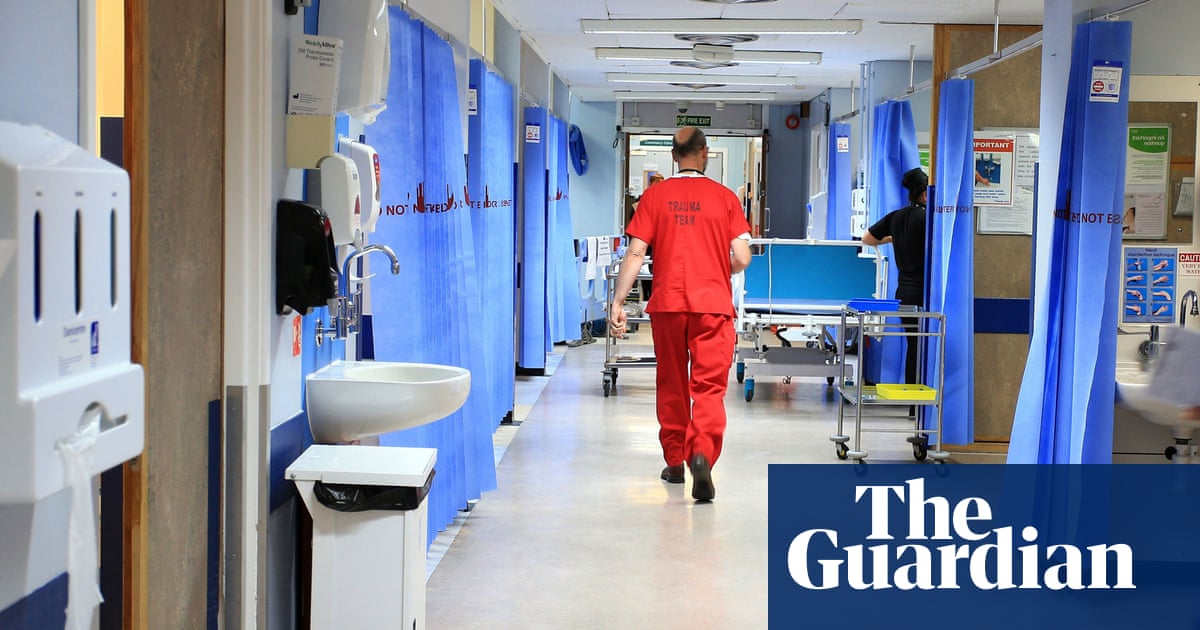The NHS hasrepeatedly failedin its diagnosis and care of stroke patients, England’s health ombudsman has said.
According to the World Stroke Association,more than 12 million people worldwidewill have their first stroke this year and 6.5 million will die as a result. Strokes areone of the UK’s biggest killers, causing about 34,000 deaths a year, and the single biggest cause of severe disability.
TheNHS Fast campaignaims to raise awareness of the most common symptoms of stroke – facial drooping, arm weakness and slurred speech – and the need for prompt treatment, including transfer to a specialist stroke unit within four hours. Without it, a stroke can result in death or long-term disabilities such as paralysis, memory loss and communication problems.
Figures from theSentinel stroke national audit programme(SSNAP), which assesses the quality of stroke care in England, Wales and Northern Ireland, show that just 46.6% of patients are directly admitted to a specialist stroke unit within four hours of symptoms starting.
The ombudsman looks into cases where a patient or family has complained to anNHScare provider but been dissatisfied with the outcome. It is seen as a last resort once other complaints procedures have been exhausted.
The ombudsman said the number of investigations it had conducted over poor stroke care, including not spotting symptoms and delays to diagnosis, rose by two-thirds in the four financial years to March 2025, from 17 to 28. The number of complaints also rose over this period from 318 to 396.
Rebecca Hilsenrath, the chief executive of England’s health ombudsman service, said these included repeated failings in diagnosis, nursing care, communication, and treatment of patients with strokes.
“Over the past four years we have seen a significant rise in the number of complaints and investigations related to people who have suffered a stroke, including typical and atypical presentations. This is particularly concerning as early diagnosis is crucial in giving patients the best opportunity for successful treatment and recovery,” she said.
“These investigations all represent instances where organisations involved have not identified a failing. It is important that the NHS operates in a learning culture and that when things go wrong clinicians recognise what has happened and put it right for those involved, as well as improve care and treatment for future patients.”
The ombudsman said clinicians needed to act more quickly when they suspect a stroke, even if the patient presents with atypical symptoms. They also should improve communication and collaboration to make treatment more joined up.
Juliet Bouverie, the chief executive of theStrokeAssociation, said the findings were “deeply concerning”.
She said: “Whilst dedicated stroke professionals provide compassionate care, without urgent investment and action, stroke patients will continue to face unacceptable variations in treatment and support. We’re also calling for a wider cardiovascular plan, with a focus on stroke, to ensure stroke survivors have the best chance of making a good recovery.”
Prof Martin James, the SSNAP clinical director, said: “In the national stroke audit we have seen a significant fall in the proportion of patients with acute stroke who are getting specialist care and treatment in a timely fashion on a stroke unit.
“We know that this reflects a whole range of acute pressures on hospitals that are not unique to stroke, but we also know how important that timely specialist care can be for reducing complications and disability after stroke, so it must be a priority for all hospitals to provide access to a specialist stroke unit within four hours of arrival for all their patients.”
